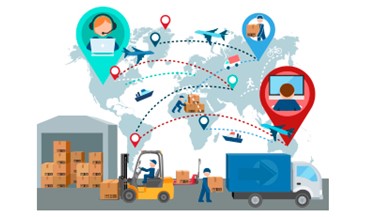The 3 most common costs to import
Among the most constant questions that we receive at e-SIIEX , our Customs Agency, is: How much does it cost me to import?
In the first instance we would like to tell you that importing is the transfer of goods and services from abroad. Primarily this activity depends on two agents, the one that requires the product or service and the one that provides or manufactures it.
As an import merchant, you need to know exactly what taxes your products may be subject to and thus avoid sanctions derived from the Laws and Rules of Foreign Trade. For this reason, we show you the costs indicated on the SAT website
As an import merchant, you need to know exactly what taxes your products may be subject to and thus avoid sanctions derived from the Laws and Rules of Foreign Trade. For this reason, we show you the costs indicated on the SAT website
1. Customs Taxes
Customs Taxes are those contributions that must be paid at customs when products or products enter the country.
- VAT (Value Added Tax): Natural and legal persons who, in national territory, import goods or services are obliged to pay the value added tax. The tax will be calculated by applying the 16% rate to the values indicated in the VAT Law.
Article 25 of the VAT Law contemplates those imports exempt from the payment of this tax. (those that, in the terms of customs legislation, are not consummated, are temporary, have the character of return of temporarily exported goods or are subject to transit or transshipment.)


- CPF (customs processing fee): is that contribution that is caused by the customs operations of importing companies in Mexico using a customs petition or document, in accordance with the rates or quotas established in article 49 of the Federal Law of Rights.
- IGI (General Import Tax): It is the General Import Tax and is associated with a tariff fraction. The tariff fraction is made up of 6 digits that are used to classify an item at the time of its importation into our country, thus knowing how much IGI is paid.
The General Import Tax can be:
Ad Valorem: when expressed in percentage terms of the merchandise's customs value. (percentage determined on the amount of an item according to the customs value.)
Specific: when expressed in monetary terms per unit of measure. (number of monetary units per volume unit)
Mixed: when it is a combination of the previous two.
These tariffs can adopt the following modalities:
Tariff-quota, when a tariff level is established for a certain quantity or value of exported or imported merchandise, and a different rate for exports or imports of those merchandise that exceed said amount.
Seasonal tariff, when they establish different tariff levels for different periods of the year.
The others that the federal Executive arrives to point out.
These tariffs can adopt the following modalities:
Tariff-quota, when a tariff level is established for a certain quantity or value of exported or imported merchandise, and a different rate for exports or imports of those merchandise that exceed said amount.
Seasonal tariff, when they establish different tariff levels for different periods of the year.
The others that the federal Executive arrives to point out.
In this sense, it is important that you know that the merchandise needs to have a tariff classification that serves to identify what taxes must be paid at the time of importing.
In our Customs Agency, e-SIIEX, we can manage your Documentary Operations to facilitate the Import processes in your company.
In our Customs Agency, e-SIIEX, we can manage your Documentary Operations to facilitate the Import processes in your company.
The second point to consider in import costs are:
2. Logistics Expenses
-
Packaging: it is everything that is necessary in the process of conditioning the products to protect them, and/or group them temporarily, considering their handling, transport and storage. With this format we preserve the quality of the cargo while keeping it safe, in all those operations in which it is involved, during the journey between the exporter and the importer.
The packaging of the products directly impacts their transportation and storage costs. These activities represent 58% of total operating costs.


- Freight: is the cost to pay for the displacement of a load in a means of transport. Likewise, freight can also be defined as the cost of renting the means of transport for the transfer of products.
To calculate the freight cost we can use the formula T= CF+CV(D). Where
- T: Rate
- CF: equals the fixed costs of transportation, such as salaries, taxes, insurance and rights.
- CV: are the variable costs such as fuel, maintenance, tires, road expenses, operator, among others.
- D: is the distance to travel of the quoted trip.
Or also, it can be paid according to the INCOTERM agreed by the importers of the transported goods. The stowage factor is the weight/volume ratio of the merchandise to be transported.
3.Other Expenses
-
Customs agent fees: The customs agent is the natural person whom the Ministry of Finance and Public Credit authorizes by means of a patent, to promote the clearance of merchandise for third parties, in the different customs regimes provided for in the Customs Law.
They charge 0.45% of the value of the imported merchandise, of the value of the merchandise, on average.
As a value proposal of the Customs Agency we can reduce your costs of the management of your operation and in the same way this will reduce the cost of the fees of your Customs Agent or Agency.


-
Storage: store and guard stocks that are not in the process of being manufactured or transported.
Duties will be paid for the storage of goods in deposit before customs in fiscal precincts, after the deadlines established in article 41 of the Federal Duties Law have expired. The daily quotas of the rights for the storage, in fiscal enclosures, of merchandise in deposit before the customs, are those established in article 42 of the Federal Law of Rights.
-
Maneuvers: For the authorization to provide the services of loading, unloading, stowage, hauling and transshipment of merchandise in the fiscal field, the amount of $12,211.26 mxn is paid.
Finally, the costs can change since each of the variables to determine them is not fixed. However, these are the main costs that you must take into account for your Foreign Trade and Customs operations, if there is any in which you have doubts, Contact us! and find out, you can request advice with us just clic aquí.


